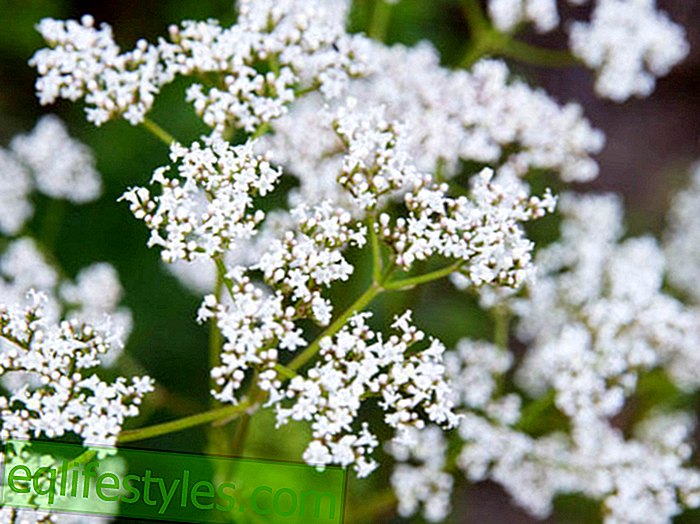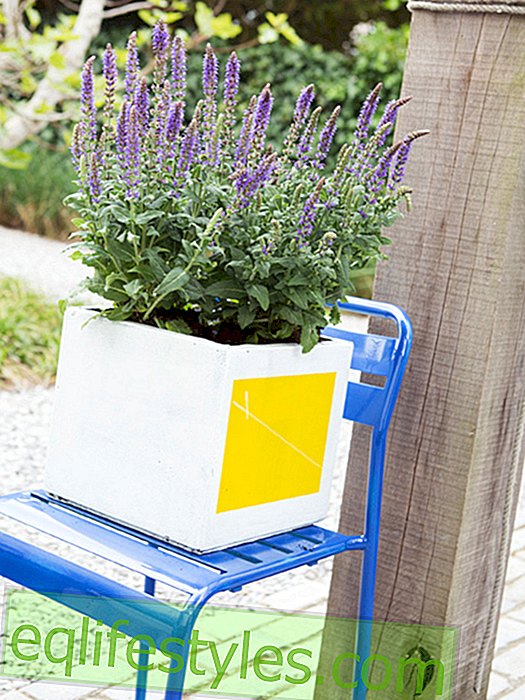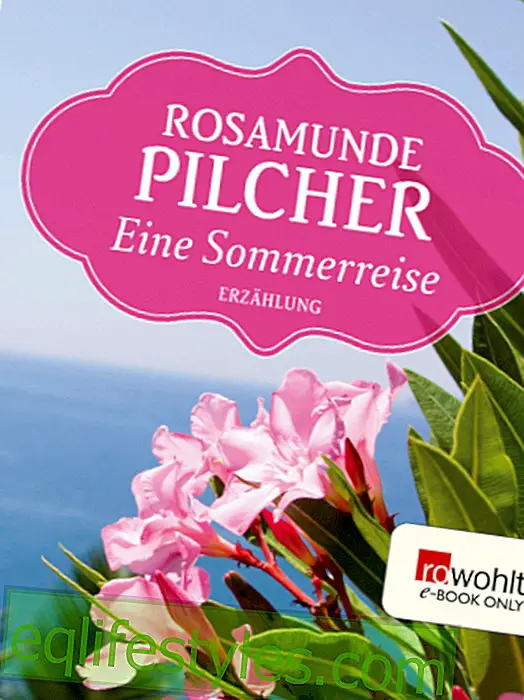A life of depression is hard.

Photo: iStock
- Ways out of depression
- Help yourself
- Allow outside help
- Medicinal plants: the best helpers from nature
Depressive moods cloud the joie de vivre. In addition to dejection, discouragement and sleep disorders, sufferers suffer mainly from their drive weakness. Even if they know what would be good for their body and soul, they will not manage to get over it. They slow themselves down, find a thousand excuses why they can not do something, and withdraw more and more.
Everyday life feels heavy - and apparently there is no way out of the eternal downward spiral. But stop!
Ways out of depression
It is good news: those who suffer from depressive moods are not completely helpless. There are many ways to fight depression. In the following we explain ways to self-therapy and possibilities of medical support.
Help yourself
"A typical core symptom for almost all depressive illnesses", explains Professor Dr. med. Dr. Gerhard Roth from the Institute of Brain Research of the University of Bremen, "is the constant pondering . A healthy person thinks through a problem, but he usually comes up with a solution at some point, which he then implements. Firstly, depressives often come to no solution and, secondly, they always come up with new problems until they are exhausted and say: "It is completely impossible, I can not do it anyway." Only when they succeed in stopping this brooding can they thinking more optimistically again. But to do that, they need a certain boost, for example, through the involvement of their partner or friends. "

Photo: Professor Gerhard Roth
In depressive people, the system that processes stress in the body produces too much of the stress hormones cortisol and adrenaline, and too little of the mood-lightening neurotransmitter serotonin. A calming conversation, a hug, a loving partnership can set a productive chain of action in motion. In doing so, the body releases the binding hormone oxytocin and brain opioids, which can balance the dysfunction. The levels of cortisol and adrenaline are decreasing and serotonin levels are rising. This is one of the most important new findings in neurobiology. "Bonding can not cure but alleviate depression, " explains Professor Roth.
But what if depression depresses me so much that I no longer feel able to make contact with other people?
" No one understands me, no one wants to have anything to do with my suffering " - this is a typical thought of depressed people, which causes these people to completely withdraw from their social environment. Breaking out of this self-chosen isolation requires a lot of courage. This can be done successively by self-commands, memorabilia, which are repeated in the same order, step by step, as in autogenic training. For example, " I relax. I know that my brain triggers these fears to others. I learn to handle it. Nobody is against me. I let the contact. "
It is important that these sentences are formulated in a positive way. This is automated after ten, twelve times. Then an effect occurs. The symptoms of depression are buried deep in the brain, in the basal ganglia. These are coordination centers below the cerebral cortex, which are partly responsible for our actions, especially for our good and bad habits. A current decision of the will can not do anything here. However, they are accessible to automation of such self-therapeutic measures. Sufferers can thus learn to distance themselves from their suffering and to deal with it.
It is also helpful to think in small steps. Professor Roth advises: "Those who are impotent think that he has to cycle or run, which is good against depression. But to put that into action requires a strong effort of will. Many can not afford that. My advice is to set a very small first goal. Not just the ten-kilometer stretch, but just getting up from the sofa or going for a walk on foot, instead of taking the car. So to undertake something that is relatively easy to create and gives a degree of satisfaction. Then slowly go on. "
Allow outside help
When it's bad, it's very hard to make any first steps out of the deep hole. That's ok, depressive moods are not something that can be solved just like that. After all, they have also been created for a long time, caused by many different triggers. It takes time to tackle depression and slowly regain life.
Therefore, support from a professional therapist is a good idea for most sufferers. There is no reason to be ashamed of his illness. Conversations with an expert who has nothing to do with personal life can be liberating and very helpful in gaining a solution-oriented view of one's life.
Medicinal plants: the best helpers from nature
What can also help in depressive phases are drugs with herbal ingredients such as St. John's Wort, valerian and passionflower. They can alleviate the symptoms of depression, support psychotherapy, and ease the way out of the deep.

Photo: Pascoe
♦ The extracts of the passion flower herb are used to treat nervous restlessness, inner tension, restlessness, nervous drowsiness and in stressful situations. The plant probably owes its calming and relaxing effect to the contained flavonoids, which, in addition to their antioxidant properties, also have a positive influence on neurotransmitters of the central nervous system.
♦ Mood enhances the true St. John's Wort (Hypericum perforatum). Because its pretty yellow flowers with the eye-catching stamens open just before the birthday of John the Baptist (June 24), it got its name. But already in pre-Christian times St. John's wort flowers, buds and leaves were harvested and used in folk medicine for skin problems, wounds or gout. In the late Middle Ages, it was recognized that the plant with its bright flowers not only brightens half-shaded roadsides, meadows or light forests, but also the mind. St. John's wort was now administered to relieve melancholy, melancholy and depression. True St. John's wort is still a valued herbal remedy for depressive moods.
♦ Valuian Valerian (Valeriana officinalis) is particularly helpful in cases of falling asleep, because the lignans contained in the root dock on specific brain receptors and influence messenger substances of the central nervous system. Therefore valerian is used in restlessness and tension. He calms down but does not tire. Nevertheless, he helps to fall asleep, because he solves the sleep-inhibiting inner tension.

Photo: Pascoe
As with all medicines, it is of course recommended to discuss the intake and dosage with a medical expert. He can determine exactly which preparation the patient actually needs and recommend medicines that combine the benefits of all medicinal plants. After all, medicinal plants are often used not only as single preparations but also in combinations.









